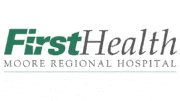In recognition of National Stroke Awareness in May, The Foundation of FirstHealth and Neuropsychologist Karen D. Sullivan, PhD, ABPP, are partnering to provide patients discharged from FirstHealth Moore Regional Hospital’s Stroke Center with an Interactive Stroke Recovery Guide. The guide, the latest addition to the I CARE FOR YOUR BRAIN with Dr. Sullivan program, offers insights from neuroscience and positive psychology to help empower stroke survivors and their families with information to achieve the best recovery possible.
“After evaluating hundreds of people after a stroke in my practice, I was asked again and again to recommend a comprehensive recovery guide,” says Sullivan, owner of Pinehurst Neuropsychology. “When I couldn’t find one that I loved, I set out to create a guide that gives people three things: comprehensive science-based information, motivational strategies to apply that knowledge to their unique stroke circumstance, and the tools to monitor and track their recovery progress after leaving the hospital.”
Sullivan approached the Foundation of FirstHealth with the idea of printing the guide for distribution to patients and was quickly informed that a special CARE Fund for Neurosciences was established years ago by Marjorie and John Roffe. CARE, an acronym for Clinical, Advocacy, Resources and Education, was founded with goals of promoting prevention through education and supporting advocacy programs in the community.
“Dr. Sullivan’s guide was an excellent illustration of the CARE Fund’s purpose,” says Kathy Stockham, president of The Foundation of FirstHealth. “Patients and their families can now leave the Stroke Center with a comprehensive educational and self-empowerment tool to make sure they have the best ingredients for the most successful outcome. The Foundation of FirstHealth is committed to making a genuine difference in the quality of life for those living in our community and we know this guide will help us achieve that goal.”
Since receiving its certification as a Primary Stroke Center in 2015, the FirstHealth Stroke Center also most recently received the “American Heart Association/American Stroke Association’s Get With The Guidelines®-Stroke Gold Plus Quality Achievement Award, which acknowledges the hospital’s commitment to ensuring stroke patients receive the most appropriate treatment according to nationally recognized, research-based guidelines based on the latest scientific evidence.
During a patient’s stay in the Stroke Center, care objectives, delivered by neuro hospitalists Melanie Blacker, MD, Sarah Uffindell, MD, and Steven Lewis, MD, stroke coordinator Barbara McGrath, RN, and a skilled team of neuro-nurses, include medical stabilization, identifying the cause or causes of the stroke and reducing disability.
“The continuum of care for the patient experiencing a stroke requires a multidisciplinary, patient centered approach to achieve optimal outcomes,” Dr. Blacker says. “This continuum begins in the pre-hospital setting with rapid symptom recognition and EMS dispatch and transport, rapidly and comprehensively assessing for acute treatment options, and throughout the acute inpatient setting.
“Studies have shown that the transition from the acute inpatient setting to in- and outpatient rehabilitation or long-term care environments has consistently been identified as an obstacle to quality stroke rehabilitation. We must continue to approach this post inpatient transition as part of the continuum of care and provide patients with both educational tools, such as Dr. Sullivan’s stroke guide, as well psychosocial support. This phase of recovery is crucial to optimizing patient outcomes and recovery.”
Providing the guide to patients transitioning to the 15-bed Inpatient Rehabilitation Center at FirstHealth, other local rehabilitation facilities or returning home with the support of family, friends and outpatient care is one more impactful way the Stroke Center team can aid in the recovery process.
“Dr. Sullivan is a huge advocate for brain health, and this guide demonstrates the important role that post-care support, education and advanced rehab strategies have in improving the stroke patient’s outcome,” McGrath says. “She brings great value to our stroke program, and we are fortunate to have her practicing in our community.”
North Carolina is one of nine states in the Southeast that comprise the Stroke Belt and ranks sixth in the nation for stroke-related deaths. With up to 80 percent of strokes considered to be preventable with behavior changes—controlling high blood pressure and diabetes, taking your medications exactly as prescribed, losing weight and quitting smoking—this group effort between The Foundation of FirstHealth, Moore Regional Stroke Center and Sullivan to provide community education and resources aims to be part of a greater solution. Plans for future care collaboration include a community outreach event this fall to further raise stroke awareness.
“It is so rewarding to finally get this Interactive Stroke Recovery Guide to those who will benefit the most, and to do it hand-in-hand with the amazing FirstHealth Stroke Center team and the support of The Foundation of FirstHealth makes me feel extremely positive about the future of brain health care in the Sandhills,” Sullivan says. “It’s pretty simple, really, people get better when community partners join forces.”
For more information on I CARE FOR YOUR BRAIN with Dr. Sullivan program, visit www.icfyb.comor call 910-420-8041. For more information on FirstHealth’s services, including stroke care, visitwww.firsthealth.org or call 800-213-3284.












